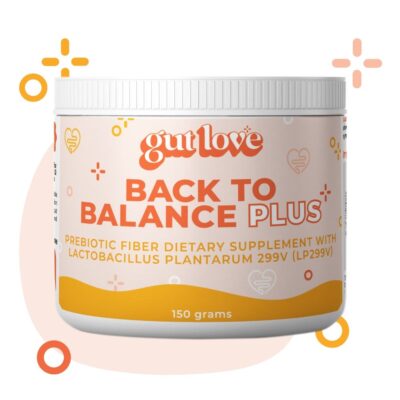Living with IBD might be daunting, but if your symptoms are effectively controlled many people are able to get back to the things they loved doing before their diagnosis. Many people require a specialized diet to help regulate symptoms well. Modifying diet and nutrition can be very helpful to ward off frequent discomforts.
What is IBD?
Inflammatory bowel disease (IBD) refers to a range of disorders that cause inflammation in the digestive tract (red, swollen, and sometimes painful). Ulcerative colitis and Crohn’s disease are the two most common forms of IBD.
If you are in good health, food travels efficiently through your digestive tract and out of your body. This food goes on to provide your body with the nutrition it needs.
When you have IBD, your digestive tract can be inflamed. With time, inflammation from IBD can lead to chronic pain and sometimes bloody diarrhea. Signs and symptoms of IBD arise and disappear in flares. With chronic inflammation, the body can sometimes fail to absorb all of the nourishment it requires. Chronic inflammation can also increase the demand for nutrients. This combination can result in malnourishment, additional IBD symptoms, or other health complications like anemia.
What are the Different Kinds of IBD?
Ulcerative Colitis
In Ulcerative colitis the immune system attacks the colon and rectum, causing swelling and ulcers on the surface lining of the large intestine or rectum. These ulcers have the potential to bleed and discharge mucus. Rather than spots of damage, ulcerative colitis establishes a continuous region of damage along the large intestine and rectum.
UC can also cause symptoms outside the digestive system. More than a third of persons with ulcerative colitis develop additional illnesses, affecting the skin, eyes, and joints.
When the inflammation gets chronic, digestive gasses can get trapped in the large intestine, causing it to expand. This condition, known as toxic megacolon, can result in a high fever as well as abdominal pain and tenderness. It is critical to seek treatment for this issue as soon as possible, as surgery may be required.
Crohn’s Disease
Crohn’s disease can impact any part of the digestive tract, from the mouth to the rectum. Unlike ulcerative colitis, Crohn’s disease causes patches of damage with healthy tissue abutting inflamed areas and can affect more than just the surface of the digestive lining.
Visit your GP if you or your child has any of the following symptoms:
❖ More than 7 days of blood in your stool.
❖ Recurrent stomach pains or cramps.
❖ Lost weight for no apparent reason.
How Will IBD Affect Your Life?
Relationships
When living with IBD, you need a strong support system. However, having IBD can make it challenging to maintain relationships with family, friends, and romantic partners. Life with IBD may be a whirlwind of physical, psychological, emotional, and financial challenges, and your loved ones are often tagged along. Crohn’s disease and ulcerative colitis can have a variety of effects on your relationships:
❖ As your condition swings between intense flares and phases of remission, the fluctuations of IBD can sometimes strain relationships with time.
❖ When your illness flares, your family and friends often become your caretakers.
❖ Siblings of a child with IBD may have emotional difficulties due to their sibling’s everyday needs.
❖ While some individuals will be empathetic and supportive of your needs, others may not.
Body Image & Disordered Eating
How you perceive your physical appearance and how your body works can affect your self-esteem and psychological well-being. Often those of us with IBD may have weight fluctuations that can be triggering- especially if we have had a history of struggling with body image or disordered eating. In addition, food feeling painful and confusion on how to navigate eating with IBD can also complicate things. In fact, 13% of us with IBD also have eating disorders and 80% were found to have disordered eating tendencies. It’s important to work with a therapist and IBD-focused dietitian if you find yourself struggling with over-restriction or body image issues as this can make it harder for you to get to remission with your IBD.
Mental Health
IBD can take a huge toll on our mental health, especially while we are in flares. Oftentimes, IBD warriors may find they have a period of grief following a diagnosis as they readjust to a completely new lifestyle. Over time, those of us with IBD may often have traumatic events occur as well that can develop into increased anxiety and in some cases PTSD. Many people find that working with a therapist and finding a health care team you trust to be hugely helpful in managing anxiety around their IBD.
What Can You Do to Relieve IBD Symptoms?
Your doctor and dietitian will discuss what you can do at home to alleviate your IBD symptoms. The following are some examples of possible steps:
Change Dietary Habits: Adapting your diet & nutrition to better support your IBD can be very helpful. This might include- reducing inflammatory diet triggers & adjusting the diet to reduce symptoms. Often, those with IBD over-restrict foods in their diet which can also cause problems, so it’s important to seek out support with an IBD-focused dietitian.
Taking vitamin supplements: Your doctor or IBD dietitian may recommend vitamin supplements to help with any nutrient deficiencies that are present as well as for preventing deficiencies from occurring. Oftentimes low levels of certain nutrients can perpetuate flares making it difficult to recover.
Taking probiotics: Taking probiotics helps alleviate some of your symptoms. Probiotics, also known as good bacteria, complement the harmless live bacteria found naturally in your body. Probiotics are found in foods like yogurt and are also available as a supplement in most stores. Remember, not all probiotics are beneficial for IBD so it’s important to know if what you are taking has evidence for the type of IBD you have. Also, the Food and Drug Administration (FDA) does not regulate supplements and vitamins like standard medicines, discuss any probiotics you take with your dietitian or doctor.
How to Manage Living With IBD
Managing Relationships
As you deal with the highs and lows of IBD, you can develop and maintain close relationships. Make a conscious effort to surround yourself with supportive people who care about your physical and mental wellbeing. A strong support system will respect and value you.
Navigating Social Situations
We all desire a little outdoor fun, whether it’s a night out with friends, going to the movies, rooting for our favorite sports team, or attending a birthday party. Socializing with IBD may mean you have to plan beforehand. You can do this by:
- Locate restrooms along the way and at your destination.
- Discuss with your family and friends what kind of help you might require when you’re out.
- Look over restaurant menus ahead of time to choose a meal plan without feeling pressured or rushed.
Body Image
Find a network of supportive people: When you’re alone in your IBD journey, it can often feel scary and isolating. The Crohn’s and Colitis Foundation of America operates over 300 support groups around the United States. You can also connect with others who have similar symptoms and worries by reading blogs or social media.
Be candid: You can ask your doctor whatever questions you want, including those about relationships, sex, or other concerns, such as issues that impact your mental health and self-esteem. For example, tell your physician if you have an upcoming event and don’t want steroids’ negative effects to come up and see if there are other options.
Make it a collaborative effort. You might want to enlist the help of other medical experts. A social worker, psychologist, or a dietitian are some of these professionals—request referrals from your doctor to specialists who have experience helping people with Inflammatory Bowel Disease.
Make appointments when you feel comfortable. When you’re not in a flare, it’s easier to talk about your concerns. It’s important to be proactive in expressing concerns early as you may not feel up for this when in a flare.
Help with IBD
Living with IBD can be pretty stressful. However, you can improve your quality of life with a few tweaks to your routine. Here at Crohn’s and Colitis Dietitians, we help you craft a diet plan that keeps your IBD symptoms at bay. Reach out to us today.







0 Comments
Trackbacks/Pingbacks